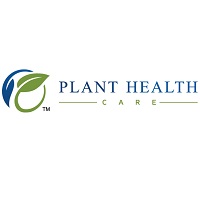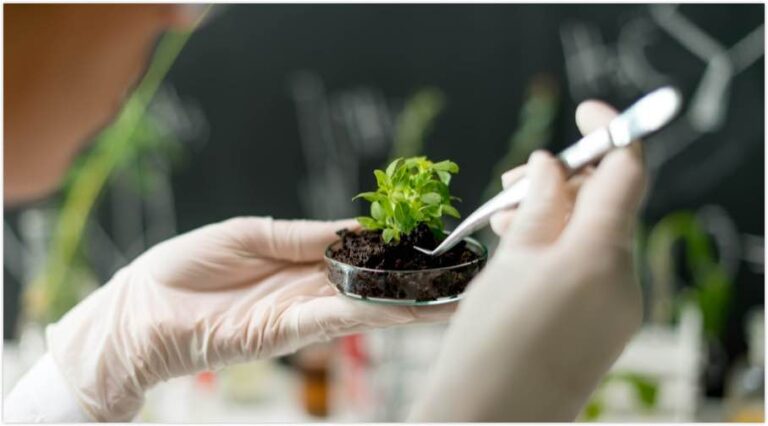Plant Health Care (LON:PHC), a leading provider of novel patent-protected biological products to global agriculture markets, announced today its unaudited interim results for the six months ended 30 June 2018.
Financial Highlights
– The Board expects to achieve full year revenue expectations, which would represent 30% growth over 2017.
– Revenue for the six months ended 30 June 2018 was $3.0 million (2017: $3.1 million). We expect revenue in the second half to advance strongly over the comparable period last year substantially driven by the launch of Harpin 𝜶β into corn in the USA and sugarcane in Brazil.
– Gross margin improved to 60% (2017:58%).
– Following a successful fundraise of $6.7 million (net of costs) in February 2018 the Company has cash reserves of $6.2 million.
– The Board expects to reach cash positive within existing cash reserves; this plan is not reliant on income from New Technology.
Operational Highlights
– Harpin 𝜶β was launched in Brazil sugarcane in February 2018 through Coplacana under the brand name H2Copla. Grower feedback has been strong.
– Since the launch of H2Copla in February 2018, the product has generated revenue of $400k. The Company expects to generate at least as much revenue from H2Copla in the second half of 2018.
– Recently announced launch into corn in the USA brings expectation of significant sales in the second half of 2018.
– Industry partners continue to evaluate Innatus 3G, T-Rex 3G and Y-Max 3G in more than a dozen crops and in three regions around the world.
The strong growth of our Commercial business expected in 2018 as a whole, together with new launches over the next eighteen months, give the Board confidence that the Group will be cash positive in 2020. The Board expects to achieve full year market expectations for 2018.
Dr. Christopher Richards, Plant Health Care plc Executive Chairman and Interim CEO, commented:
“The progress of our Commercial business in 2018 is not reflected in our first half sales, because of measures taken to reduce channel inventory in Africa. The launch into corn in the USA, together with exciting potential in sugarcane, underpin our confidence in meeting market expectations for the full year and delivering sustained growth in the medium term. We anticipate that the Commercial business will generate cash during 2018, thereby reducing the Group’s cash burn.
“Despite the set-back in the disease management trials in Brazil, we continue to have confidence in the long term value of our PREtec technology. Trials of Innatus 3G will continue in Brazil, to reinforce the yield benefit proposition and to better understand the benefit on disease management. Outside ASR in Brazil, we continue to generate positive results with PREtec peptides and pursue opportunities to monetise the technology in due course.”
“Over the last five years, we have built substantial assets in plant response elicitor technology, with over 40 patent applications in this area to date. Having secured a strong technical base for PREtec, we are now able to reduce R&D spend without compromising our active efforts to monetise the technology. At the current projected level of spend, the Commercial business will generate sufficient cash to bring us to cash positive in 2020, within existing cash reserves.”
Chairman’s statement
Introduction
I am pleased to report the interim results for the six months ended 30 June 2018. Progress in developing the Commercial business has been very positive. The launch of Harpin 𝜶β into sugarcane in Brazil has been a promising start in a market of 10 million hectares. The recently announced launch into corn seed treatment, in partnership with one of the leading suppliers to US corn growers, gives us access to a 90 million acre market. These launches have the potential to deliver transformational revenue over the medium term. Further product launches are planned in the next 18 months. While sales in the first half were held back by the need to reduce inventory in Africa, orders on hand give us confidence of meeting expectations for the full year and growth over the next three to four years. We have taken steps to reduce working capital through shorter payment terms and more efficient supply chains, which will enhance the cash generation of the Commercial business.
In New Technology, field trials in Brazil did not confirm that Innatus 3G added substantial disease reduction benefit to current ASR control programmes. While this was clearly a disappointment, the yield benefits were encouraging and trials will continue. Progress in the evaluation of Innatus 3G in other crops and of T-Rex 3G and Y-Max 3G continue to be promising. Moreover, the progress in improved formulations and in the efficiency of production processes, has been impressive. We continue to have great confidence in the value of our PREtec platforms.
Commercial Products
Our Commercial business markets our proprietary products worldwide through distributors and also distributes complementary third party products in Mexico. The Group has a portfolio of existing products, based on our proprietary Harpin 𝜶β and Myconate® technologies. Harpin-based products are now well established in certain markets. For example, Harpin 𝜶β is now used to support more than 35% of high value export vegetable production in the Northwest of Mexico, where it is a core product ensuring superior plant growth and fruiting. Our efforts are focused on extending these benefits to growers of target crops around the world and driving our market share in those crops through strong partners. The recent launch of Harpin 𝜶β into sugarcane in Brazil and the recently announced launch in corn seed treatment in the USA are examples of this approach. We plan further product launches over the next 18 months, which are aimed at driving revenue growth of Harpin 𝜶β at above 25% pa over the next three years.
During the first half of 2018, overall product sales were $3.0 million (H1 2017: $3.1 million). Constant currency sales decreased by 8%. The gross margin increased slightly to 60% compared to 58% over the same period.
Sales in the Americas increased 93%, mainly due to the introduction of Harpin 𝜶β into Brazil. Harpin αβ was launched in Brazil in February 2018 for use on sugarcane, through Coplacana, a leading cooperative. In 2018, demonstration field trials showed an average yield increase of over 20%. Initial demand from growers has been very encouraging. Since the launch of H2Copla in February 2018, the product has generated revenue of $400k. We have orders on hand for Brazilian sugarcane for the second half of 2018 and are confident sales will continue to build over the coming years.
In September 2018, we announced the launch of Harpin 𝜶β as a seed treatment product for field corn in the US. Harpin 𝜶β will be marketed and sold as a mixture product by a leading supplier to US farmers. This provides the Company access to a very large market with an excellent partner; with over 90 million acres of corn planted in 2018, this is a very important launch for future growth of Harpin 𝜶β. We plan further product launches in the USA over the coming months.
Sales in Mexico increased by 21% in local currency. The prices of vegetable crops rebounded from the prior year and investment in increasing the sales force led to wider distribution; both factors contributed to the increase in revenue. Harpin 𝜶β sales increased 38% in local currency.
Sales in Europe/Africa were disappointing, decreasing by 78% (80% in constant currency). This was mainly due to slower than anticipated sales growth in Africa, which resulted in our distributor holding higher inventory than forecast. We therefore made no sales into Africa in H1 2018 in order to reduce downstream inventory. On ground sales in Africa are encouraging and we expect to resume sales in the second half. Sales in Spain have increased 35% per annum over the last 2 years and are anticipated to progress at that rate primarily in the citrus and rice markets.
Sales by the Group in any one period will be subject to a number of seasonal and market-related factors, as well as the terms of agreements with third parties and the timing of product registrations. As a result, the Group’s sales may not follow a strictly linear trend. Historically, Group sales have been heavily weighted towards the second half of the year.
New Technology
PREtec
New Technology is focused on the discovery, development and out-licensing of novel product candidates incorporating PREtec peptides and genetics. The Group has built a product discovery pipeline in the field of plant response elicitors, where it has a strong portfolio of intellectual property, including many patent application submissions.
The name PREtec signifies “plant response elicitor technology”. Our distinctive expertise has its roots in earlier experience with the discovery and understanding of the biological activity of harpins under the leadership of the Company’s Chief Science Officer, Dr. Zhongmin Wei.
There are now three PREtec platforms under evaluation with partners, and a fourth under discussion. Each platform represents a distinctive “design space” encompassing a large range of possible peptides, whose unique structures are defined by the patent criteria. On contact with plants such peptides act as signal molecules, eliciting customisable responses that are determined by their molecular structure. By mid-2018, we had filed over 40 patent applications for these designs and their uses.
Innatus 3G, T-Rex 3G & Y-Max 3G
The first platform, introduced in late 2014, is Innatus 3G. Peptides from Innatus 3G show great potential in delivering yield improvements and in invoking disease and pest resistance in crop plants.
The second platform, introduced in 2016, is T-Rex 3G. Peptides from T-Rex 3G show the most promise in suppressing populations of nematode pests. Nematodes lower agricultural yields and render affected plants susceptible to fungal diseases and drought stress.
The third platform, also introduced in 2016, is Y-Max 3G. Peptides from Y-Max 3G have a distinctive mode of action, and elicit growth and metabolic (rather than defensive) responses in plants. This makes them useful as biostimulants to improve crop yield and harvest quality. As such, they are subject to less onerous regulatory requirements.
Innatus 3G trials in Brazilian soybeans
In 2017, the Company conducted trials of Innatus 3G which demonstrated the benefit of peptides for the control of ASR, a devastating fungal disease of soybeans in Brazil. Farmers spent US$1.7 billion on soybean fungicides in 2016 in Brazil*. ASR resistance to chemical fungicides has been a major challenge.
Based on these results, the Company conducted expanded field trials of Innatus 3G peptides in the 2017/18 Brazilian soybean crop. Four partners, which between them represent more than 80% of this fungicide market*, also carried out field trials , as did EMBRAPA, the Brazilian Ministry of Agriculture research organisation.
Unexpectedly, in the 2017/18 season, conventional chemical spray regimes delivered good control in most areas. While Innatus 3G did show disease control benefits on top of chemical fungicides, the level of improved control was not substantial. However, these trials also showed increases of 6-7% in the average yield of soybeans treated with Innatus 3G, even at low application rates. This effect was particularly evident in areas where there was less disease pressure.
In light of these developments, the Company has decided not to license rights to Innatus 3G for South American soybean this year. Soybean field trials in South America will continue. These trials will be designed to test both disease management and yield promotion benefits of Innatus 3G, exploring the promise of performance at lower rates and by applying peptide as a seed treatments. Test material will include our new formulation of Innatus 3G, fermented and formulated at pilot scale.
Innatus 3G outside Brazil; T-Rex 3G and Y-Max 3G
While the Company has focused resources on Innatus 3G in Brazil, good progress continues elsewhere.
In the first half of 2018, three of our evaluation partners reported positive results with our lead peptides in a range of more than 10 crops, uses and regions. In the latter part of the year we will be getting further results from field trials in a number of crops in Europe and the Americas, including corn, soy, fruits and vegetables, and turf.
We have received expressions of interest from further potential partners and expect to run a similar collaborative evaluation program next year.
Internally, work on the production of PREtec peptides has advanced substantially. We are now achieving yields from fermentation and processing of Innatus 3G peptides well ahead of our targets, reinforcing the cost efficacy of peptides. Our laboratories have also developed a new formulation that will be easier to use than the existing experimental formulations; this has been produced at pilot scale and will increasingly be used in future trials. Meanwhile, good progress continues to be made towards product registrations in the Americas.
The Company continues to have high confidence in the medium term value of PREtec and is actively pursuing opportunities to monetise it.
*Source: Phillips McDougall 2016 Market data – AgrAspire database.
Investment in Research and Development
Investment in New Technology was $2.4 million in the first half of 2018 (2017: $2.4 million). The Company intends, going forward, to focus investment in New Technology on support for the ongoing evaluation of PREtec by our partners, including improved formulation development and production, and demonstration of specific value propositions. The result will be a reduction in the rate of spend from H2 2018 onwards without compromising our capability to pursue PREtec technology licences.









































